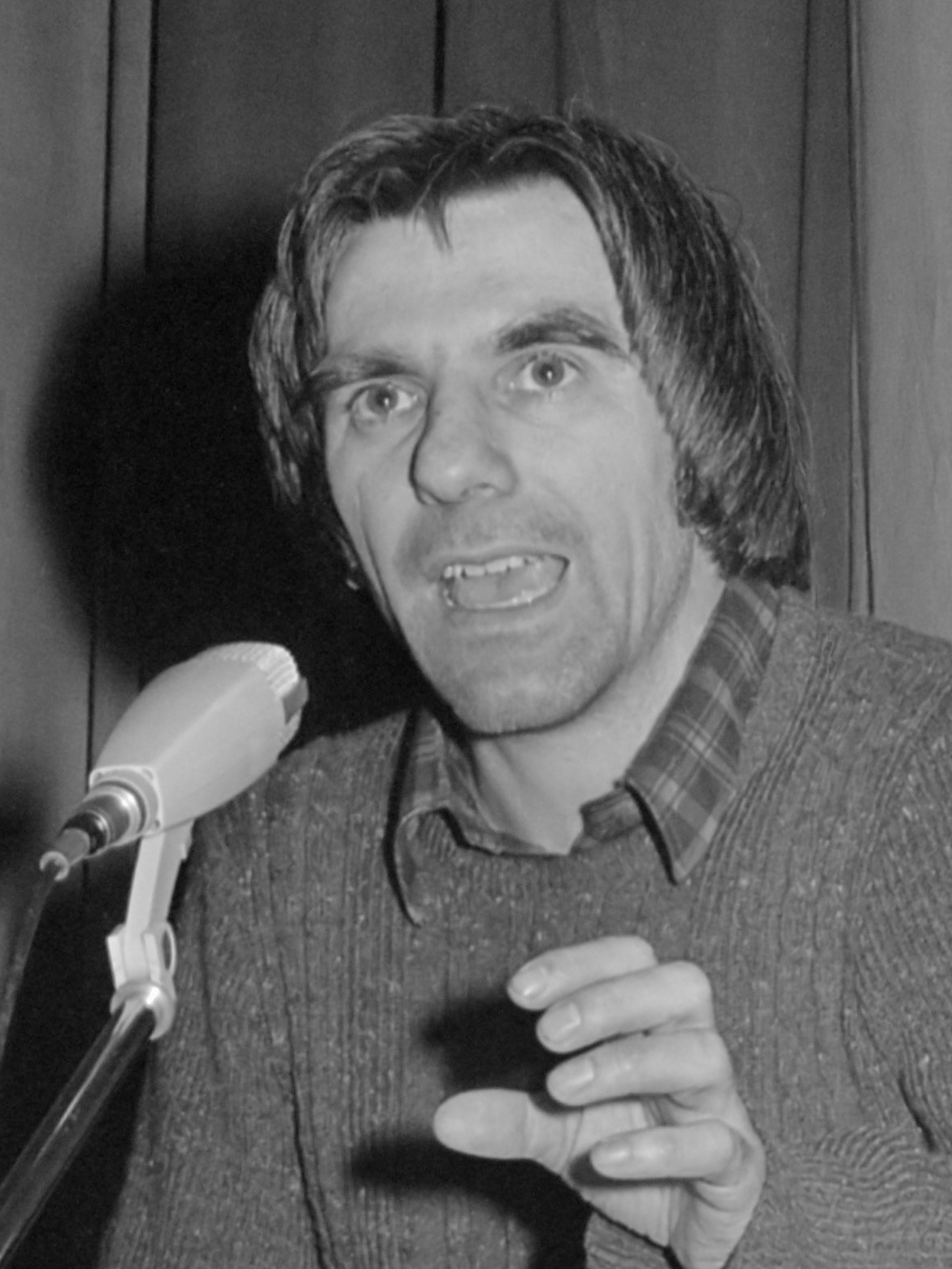Rudi Dutschke Shot (1968)
Thu Apr 11, 1968

Image: Rudi Dutschke in 1976 [Wikipedia]
On this day in 1968, Rudi Dutschke, a key figure in the extra-parliamentary left opposition movement in West Germany, was shot by neo-Nazi Josef Bachman. Although Dutschke survived the shooting, he died from complications due to his injuries.
Born in 1940, Rudi Dutschke grew up in post-war East Germany. As a youth, he became involved with the Evangelical Church in East Germany and would later claim religious inspiration for his socialism, tying the idea of spiritual transcendence with societal transcendence.
Dutschke's views on socialism, influenced by worker councils during the Hungarian Uprising of 1956, put him in conflict with GDR authorities, and he defected to West Germany shortly before construction of the Berlin Wall began in 1961.
Dutschke became influenced by ideas of social provocation proposed by the Situationist International, and joined the Situationist group Subversive Action in 1963. He edited their newspaper and wrote about revolutionary developments in the Third World.
Subversive Action would later join the German Socialist Students' Union, which had formerly been the student wing of the social democratic SPD before being expelled due to being well to the left of its parent organization. After being elected to the political council of the West Berlin SDS in 1965, Dutschke became a major leader calling for student resistance in West Germany, focusing on the Vietnam War in particular.
As the movement grew, Dutschke's visibility made him a figure of attack from right-wing politicians and press, such as those owned by Axel Springer, which controlled around 67% of West Germany's press market at the time. His family was forced to leave their apartment after it was attacked with smoke bombs, excrement, and threatening graffiti.
In 1967, Dutschke famously advocated for a "long march through the institutions", to join political and media establishments to build power for leftist movements from within.
On April 11th, 1968, while attempting to collect a prescription for his infant son, Dutschke was shot by Josef Bachmann, a young laborer with ties to neo-Nazi groups. Bachmann shouted "you dirty, communist pig!" and shot him three times.
Bachman claimed to have been inspired by the assassination of MLK Jr., which had taken place just a week prior. The assassination attempt spawned another wave of attacks on Springer Press facilities by protestors, and the shooting was viewed as a major factor in the rise of the militant Red Army Faction (RAF).
While Dutschke survived, he suffered from significant memory and speech issues along with epileptic seizures, and was soon forced to step down from his political roles. He moved with his family to England in 1969, only to be accused by the Conservative Party-controlled UK Home Office of engaging in political activity in 1971 and expelled, before taking up a teaching role at the University of Aarhus in Denmark.
Dutschke would later maintain limited political involvement during the 1970s, supporting East German dissidents. His thoughts on the Red Army Faction during this time remain controversial; when RAF member Holger Meins died on hunger strike, he commented at his grave; "the struggle continues". However, he grew critical of their actions which risked harm to civilians and people rather than infrastructure and objects.
In December 1978, Dutschke wrote, "Every small citizens' initiative, every political and social youth, women, unemployed, pensioner and class struggle movement is a hundred times more valuable and qualitatively different than the most spectacular action of individual terror".
Dutschke died on December 24th, 1979 after suffering an epileptic seizure while taking a bath at his home in Denmark, causing him to drown. Thousands gathered at his funeral, where Protestant theologian Helmut Gollwitzer described him as someone "fought passionately, but not fanatically, for a more humane world".